Jiacong Mi
RoKEPG: RoBERTa and Knowledge Enhancement for Prescription Generation of Traditional Chinese Medicine
Nov 29, 2023



Abstract:Traditional Chinese medicine (TCM) prescription is the most critical form of TCM treatment, and uncovering the complex nonlinear relationship between symptoms and TCM is of great significance for clinical practice and assisting physicians in diagnosis and treatment. Although there have been some studies on TCM prescription generation, these studies consider a single factor and directly model the symptom-prescription generation problem mainly based on symptom descriptions, lacking guidance from TCM knowledge. To this end, we propose a RoBERTa and Knowledge Enhancement model for Prescription Generation of Traditional Chinese Medicine (RoKEPG). RoKEPG is firstly pre-trained by our constructed TCM corpus, followed by fine-tuning the pre-trained model, and the model is guided to generate TCM prescriptions by introducing four classes of knowledge of TCM through the attention mask matrix. Experimental results on the publicly available TCM prescription dataset show that RoKEPG improves the F1 metric by about 2% over the baseline model with the best results.
MultiModal-Learning for Predicting Molecular Properties: A Framework Based on Image and Graph Structures
Nov 28, 2023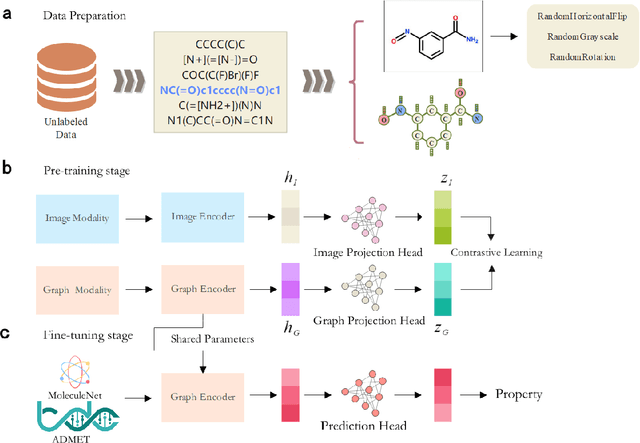
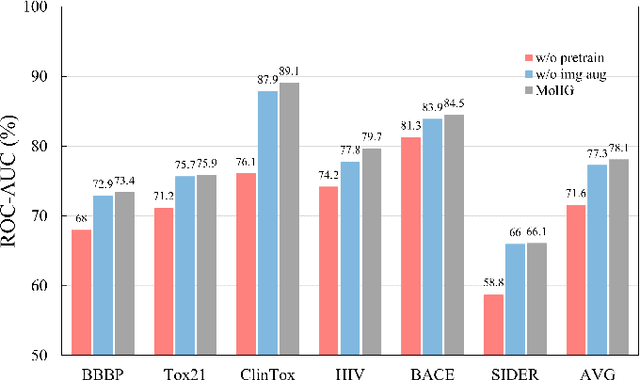
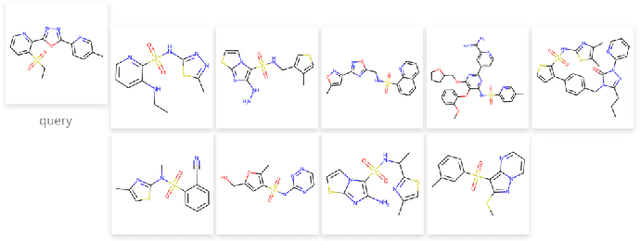
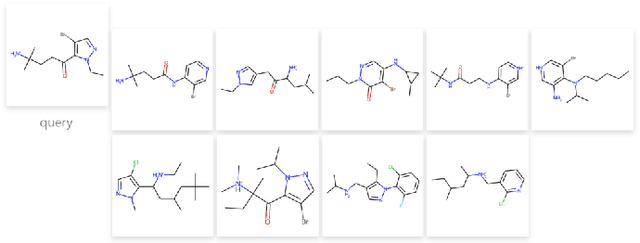
Abstract:The quest for accurate prediction of drug molecule properties poses a fundamental challenge in the realm of Artificial Intelligence Drug Discovery (AIDD). An effective representation of drug molecules emerges as a pivotal component in this pursuit. Contemporary leading-edge research predominantly resorts to self-supervised learning (SSL) techniques to extract meaningful structural representations from large-scale, unlabeled molecular data, subsequently fine-tuning these representations for an array of downstream tasks. However, an inherent shortcoming of these studies lies in their singular reliance on one modality of molecular information, such as molecule image or SMILES representations, thus neglecting the potential complementarity of various molecular modalities. In response to this limitation, we propose MolIG, a novel MultiModaL molecular pre-training framework for predicting molecular properties based on Image and Graph structures. MolIG model innovatively leverages the coherence and correlation between molecule graph and molecule image to execute self-supervised tasks, effectively amalgamating the strengths of both molecular representation forms. This holistic approach allows for the capture of pivotal molecular structural characteristics and high-level semantic information. Upon completion of pre-training, Graph Neural Network (GNN) Encoder is used for the prediction of downstream tasks. In comparison to advanced baseline models, MolIG exhibits enhanced performance in downstream tasks pertaining to molecular property prediction within benchmark groups such as MoleculeNet Benchmark Group and ADMET Benchmark Group.
ACDNet: Attention-guided Collaborative Decision Network for Effective Medication Recommendation
Jul 06, 2023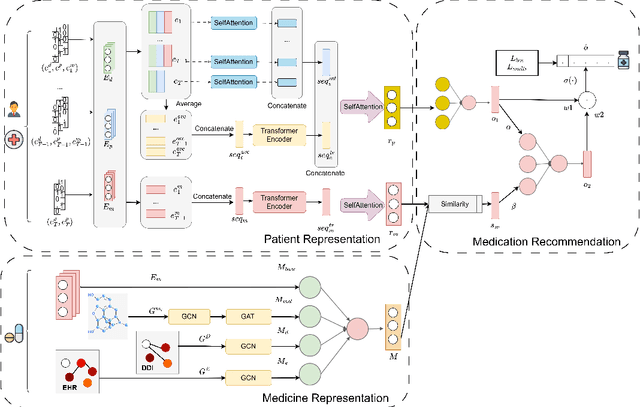
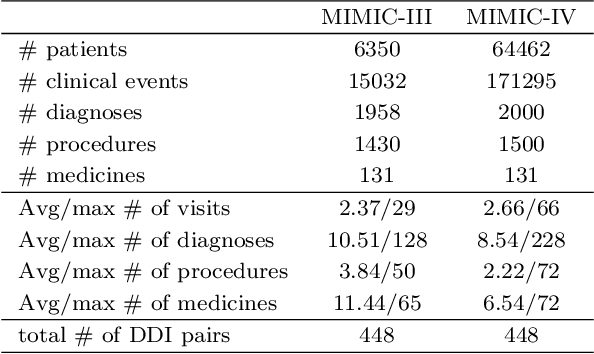
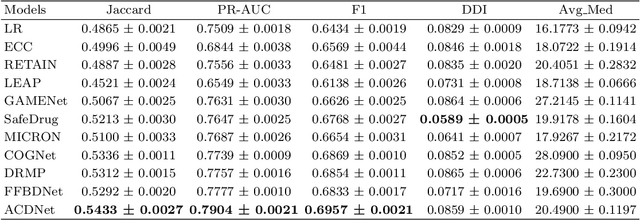
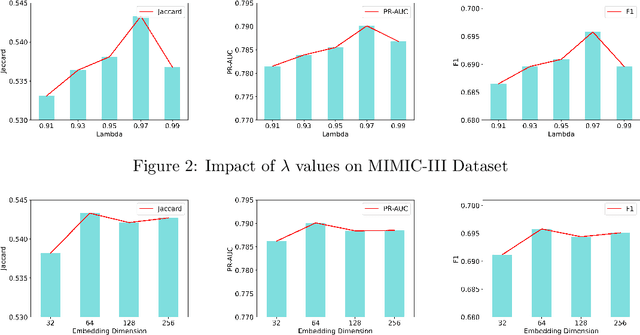
Abstract:Medication recommendation using Electronic Health Records (EHR) is challenging due to complex medical data. Current approaches extract longitudinal information from patient EHR to personalize recommendations. However, existing models often lack sufficient patient representation and overlook the importance of considering the similarity between a patient's medication records and specific medicines. Therefore, an Attention-guided Collaborative Decision Network (ACDNet) for medication recommendation is proposed in this paper. Specifically, ACDNet utilizes attention mechanism and Transformer to effectively capture patient health conditions and medication records by modeling their historical visits at both global and local levels. ACDNet also employs a collaborative decision framework, utilizing the similarity between medication records and medicine representation to facilitate the recommendation process. The experimental results on two extensive medical datasets, MIMIC-III and MIMIC-IV, clearly demonstrate that ACDNet outperforms state-of-the-art models in terms of Jaccard, PR-AUC, and F1 score, reaffirming its superiority. Moreover, the ablation experiments provide solid evidence of the effectiveness of each module in ACDNet, validating their contribution to the overall performance. Furthermore, a detailed case study reinforces the effectiveness of ACDNet in medication recommendation based on EHR data, showcasing its practical value in real-world healthcare scenarios.
 Add to Chrome
Add to Chrome Add to Firefox
Add to Firefox Add to Edge
Add to Edge